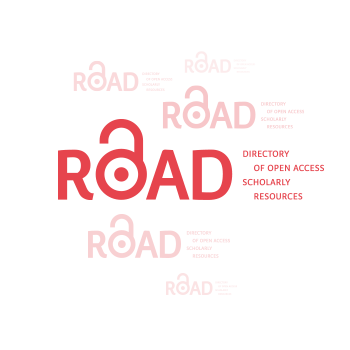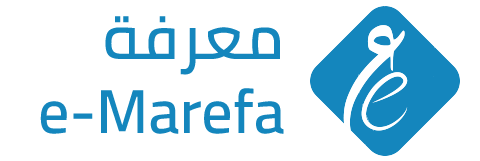تقنيات الذكاء الاصطناعي ودورها في تعزيز الميزة التنافسية في المدارس الفلسطينية
DOI:
https://doi.org/10.59994/pau.2024.2.120الكلمات المفتاحية:
الذكاء الاصطناعي، الميزة التنافسية، المدارس الفلسطينيةالملخص
هدفت هذه الدراسة إلى التعرّف على تقنيات الذكاء الاصطناعي ودورها في تعزيز الميزة التنافسية في المدارس الفلسطينية. استخدم الباحثون المنهج التفسيري المتتابع (Explanatory Sequential Design)، حيث تم إجراء مقابلات غير مهيكلة مع خبراء ومختصين لإعداد الاستبانة، تلاها مقابلات مهيكلة من أجل تفسير النتائج. تم اختيار عينة عشوائية بسيطة مُكوّنة من (272) معلم في منطقة عنقود الحسين التعليمية في مدينة الخليل. أشارت نتائج الدراسة إلى وجود علاقة ذات دلالة إحصائية بين تقنيات الذكاء الاصطناعي ودورها في تعزيز الميزة التنافسية في مدارس منطقة عنقود الحسين التعليمية. كما أشارت الدراسة إلى وجود مستوى عالٍ من الميزة التنافسية بين المدارس الفلسطينية، مع تحديد مجالات جودة الخدمة التعليمية والإبداع والابتكار والاستجابة لاحتياجات المعلمين والكفاءة المتميزة كمجالات رئيسية لمزيد من التحسين. أوصى الباحثون بضرورة زيادة الاستثمار في البنية التحتية الرقمية، وتدريب المعلمين، والحرص على توفير البرامج البحثية والتطويرية المتخصصة في مجال الذكاء الاصطناعي. بالإضافة إلى ذلك، أكّدت الدراسة على أهمية التخطيط الاستراتيجي، وإجراءات حماية البيانات، علاوة على التعاون مع أصحاب المصلحة، ووضع سياسات أخلاقية واضحة. خلصت الدراسة إلى أنه من خلال الاستفادة الأكثر فاعلية للذكاء الاصطناعي يمكن للمدارس الفلسطينية المضي قدمًا نحو تعزيز القدرة التنافسية والارتقاء بجودة التعليم. تُعدّ هذه الدراسة إسهامًا علميًا قيّمًا في مجال تعزيز الميزة التنافسية. وتُشير نتائجها إلى أهمية تقنيات الذكاء الاصطناعي في تعزيز الميزة التنافسية في المدارس الفلسطينية.
التنزيلات
المراجع
Abd Alghafoor, S. (2015). Knowledge management requirements and their role in achieving competitive advantage in the universities of the Gaza Strip. Master's thesis, Al-Aqsa University.
AbdAlNoor, A. (2015). Basics of artificial intelligence. Dar Al-Fasl Saudi Cultural House.
Abed, A. (2017). A proposed model to raise the competitiveness of King Saud University in light of the standards of international university classifications. International specialized educational journal. 6(3), 306-327.
Al Dhahouri, N. (2022). The Impact Of Artificial Intelligence On The Performance Of Universities: Field Study On Theoretical And Applied Colleges At Ain Shams University. Ain Shams University, Egypt.
Almalki, W. (2023). The Role of Artificial Intelligence Applications in Enhancing Educational Strategies in Higher Education (Literature Review). Journal of Educational and Psychological Sciences (JEPS). 7(5), 93-107.
Al-Muraikhi, M. (2023, 06 15). Improving the administrative performance of secondary school principals in Artificial Intelligence. Journal of Arabian Peninsula Centre 2(17), 66-95.
Creswell, J. (2016). Research design: Qualitative, quantitative, and mixed methods approaches. (5th ed.). Sage publications.
Fadli, S. (2018). How the mind works in humans. Aseer Al Kutub Publishing House, Egypt.
Fahimirad, M., & Kotamjani, S. (2018). A Review on Application of Artificial Intelligence in Teaching and Learning in Educational Contexts. International Journal of Learning and Development, 8(4), 106-118. https://doi.org/https://doi:10.5296/ijld. v8i4.14057
Hajira, S. (2018). The role of artificial intelligence in managing the electronic customer relationship of the Algerian Popular Credit. Academy Journal for Social and Human Studies. (1)20,81-90.
JabaAllah, A., Murghini, Z., & Muhamadi, A. (2021). The role of artificial intelligence in improving competitiveness in economic enterprises - a field study on the Condor Foundation in Algeria. Master's thesis, Shahid Hama Lakhdar University in El Oued.
Jozi , N., & Bouzid , M. (2022). The impact of applying artificial intelligence and emotional intelligence on the quality of decision-making - an applied case study at the Bank of Agriculture and Rural Development. Master's thesis, Ibn Khaldun University - Tiaret.
Mohammed, A. (2020). The impact of administrative applications of artificial intelligence on the competitive advantage of business organizations by applying it to commercial bank branches in Mansoura. Scientific Journal of Financial and Commercial Studies and Research, 1(1), 191-239.
Mutiri, A. (2019). Artificial intelligence is an input for developing educational decision-making in the Ministry of Education in the State of Kuwait. Journal of Scientific Research in Education, 11(10), pp. 573-588.
Norvig, P., & Russell, S. (2021). Artificial Intelligence: A Modern Approach. Pearson Education, Inc.
Porter, & Michael, E. (2018). Competitive Strategy: Techniques for Analyzing Industries and Competitors. The Free Press.
Qarni, H. (2017). Developing the admission policy in Saudi universities to achieve competitive advantage in light of global experiences. Phdl thesis, Imam Muhammad bin Saud Islamic University, Kingdom of Saudi Arabia.
Rowais, F. (2021). Artificial intelligence and its role in enhancing the competitiveness of educational institutions: a theoretical approach. Arab Journal of Quality in Education. 8(2), 1-62.
Said, K. (2015). Knowledge management requirements and their role in achieving competitive advantage in the universities of the Gaza Strip. Master's thesis, Al-Aqsa University.
Toul, M., & Bakar, A. (2023, 6 15). The use of artificial intelligence systems and their impact on improving product quality and creating a competitive advantage, according to the vision of the CERAM Al-ghazawat engineers and employees. Journal of Economic Integration, 11(4), pp. 461-480.
التنزيلات
منشور
كيفية الاقتباس
إصدار
القسم
الرخصة
الحقوق الفكرية (c) 2024 مجلة جامعة فلسطين الأهلية للبحوث والدراسات

هذا العمل مرخص بموجب Creative Commons Attribution 4.0 International License.
مجلة جامعة فلسطين الاهلية للبحوث والدراسات تعتمد رخصة نَسب المُصنَّف 4.0 دولي (CC BY 4.0)











